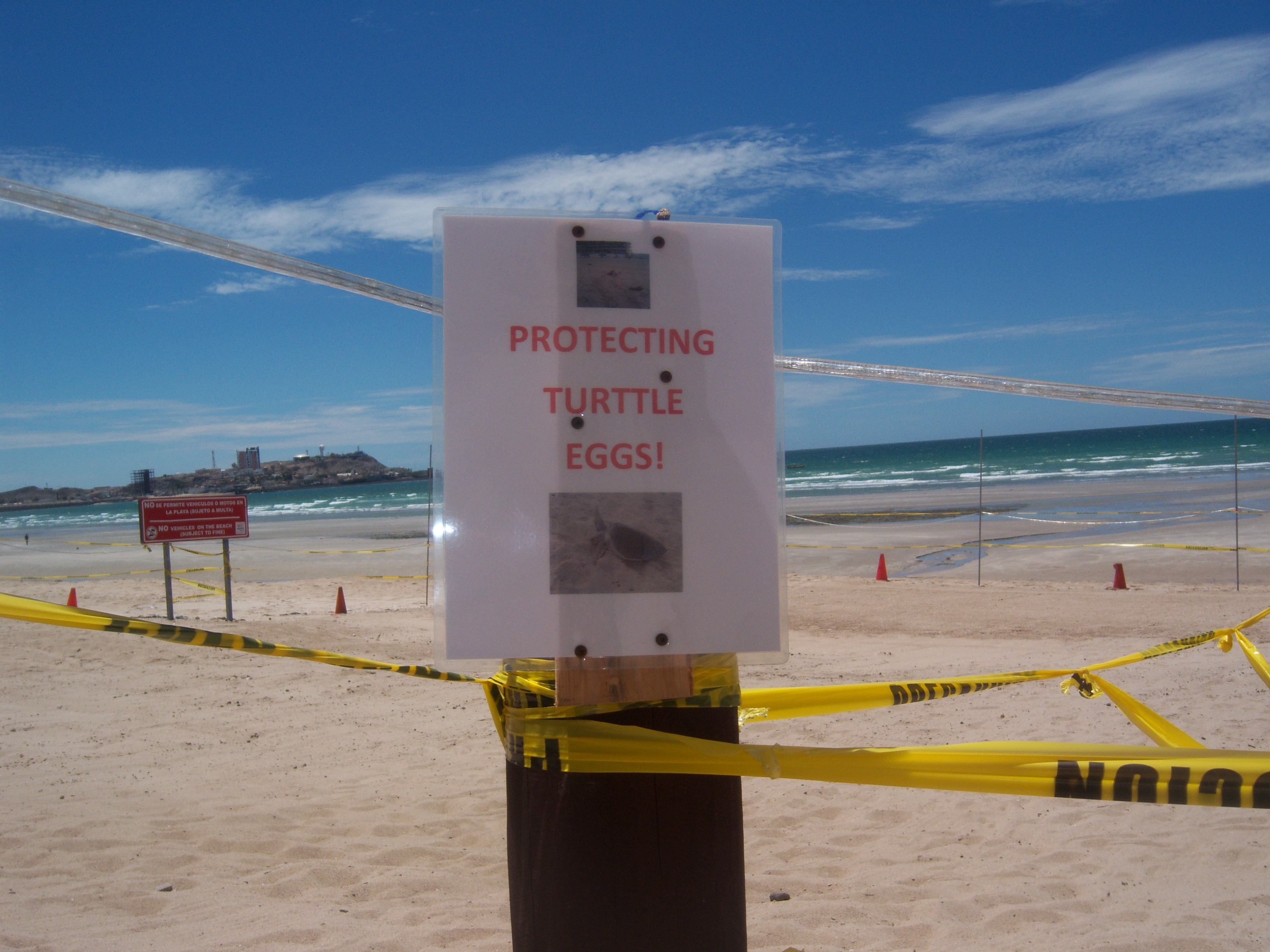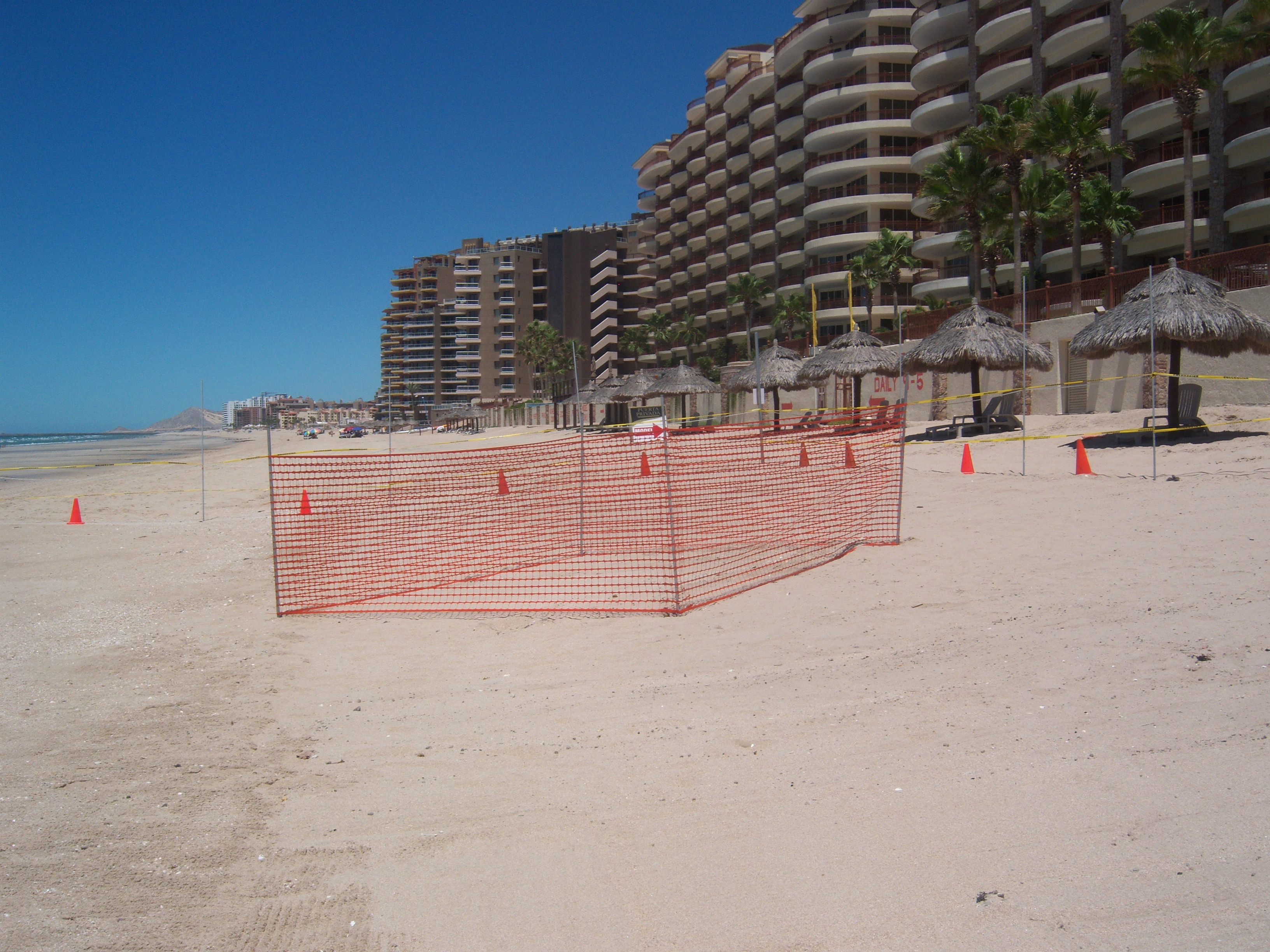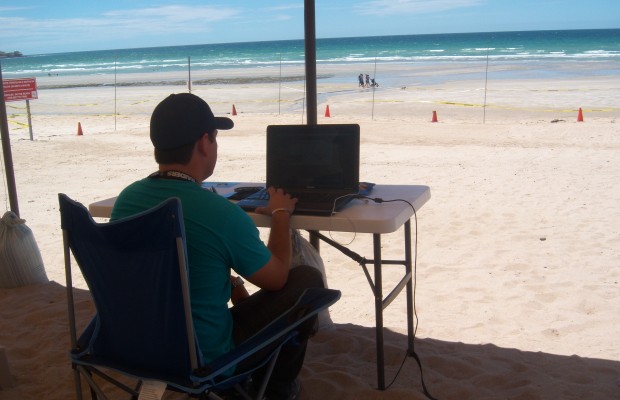Two inspectors from the Federal Environmental Protection Office (PROFEPA) are watching over the area in front of Puerta Privada where in early July an Olive Ridley turtle lay its eggs.
 The area has been roped off to prevent damage to the eggs due to people or horses along this stretch of beach. The protective markers will remain in place until August 25th when the eggs are expected to hatch.
The area has been roped off to prevent damage to the eggs due to people or horses along this stretch of beach. The protective markers will remain in place until August 25th when the eggs are expected to hatch.
PROFEPA inspector Carlos Félix Álvarez indicates staff from the Intercultural Center for the Study of Deserts and Oceans (CEDO) and the National Commission of Protected Areas (CONANP) have visited the spot, along with specialists who have provided support in caring for the area, as in the case of biologist Humberto González. González has been externally supervising the area after it was covered by tides about 2 weeks ago.
“The area did not seem to be affected by the tide; to the contrary, the humidity and heat this caused is ideal for the depth where the eggs lay,” stated the biologist.
According to those in charge of monitoring the roped off site, to date there has been no damage due to people, animals, or natural factors. This helps to ensure the eggs develop fully within the nest made by the turtle.
“Curious people have come to ask what’s going on, and they see the signs and ask questions but that’s it. They also take photos. We were concerned about horses and those who sell items on the beach, though they pass by at a distance and everything has been fine,” he explained.
 The federal inspector indicated that according to biologists, the turtle that laid her eggs on the beach was an olive or pacific ridley turtle, “lepidochelys olivacea”, weighing nearly 30 kilograms and measuring about 60 centimeters. It is believed she laid between 60 to 80 eggs at a depth of approximately 40 centimeters. Once the turtles hatch, they will make their way to the sea alone.
The federal inspector indicated that according to biologists, the turtle that laid her eggs on the beach was an olive or pacific ridley turtle, “lepidochelys olivacea”, weighing nearly 30 kilograms and measuring about 60 centimeters. It is believed she laid between 60 to 80 eggs at a depth of approximately 40 centimeters. Once the turtles hatch, they will make their way to the sea alone.
Another curious note about these turtles is that when they reach reproductive age, they return to the area where they were born.
Federal and local authorities hope to hold a special event once the newly hatched turtles make their way to the sea, if time and circumstances allow.
